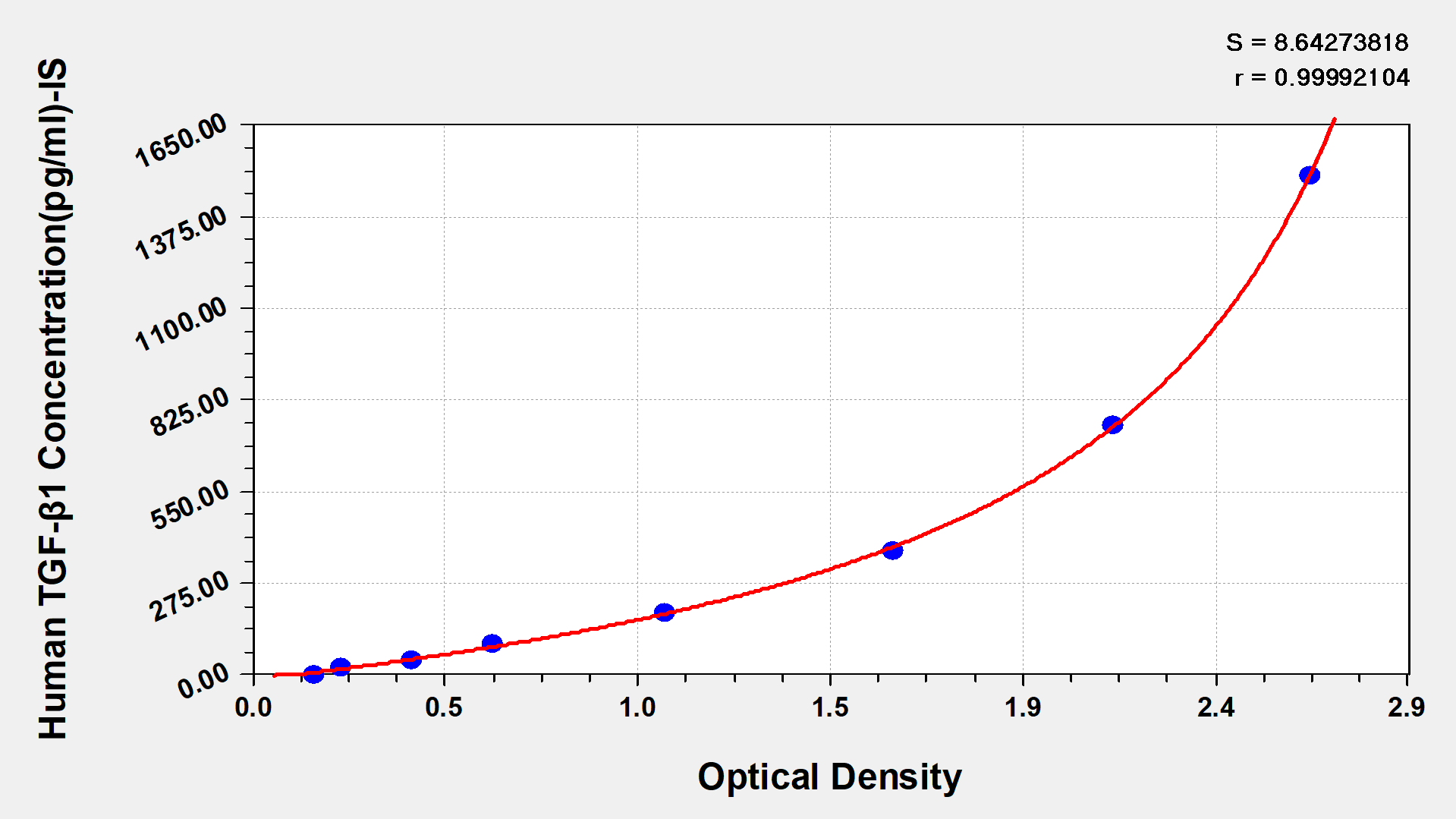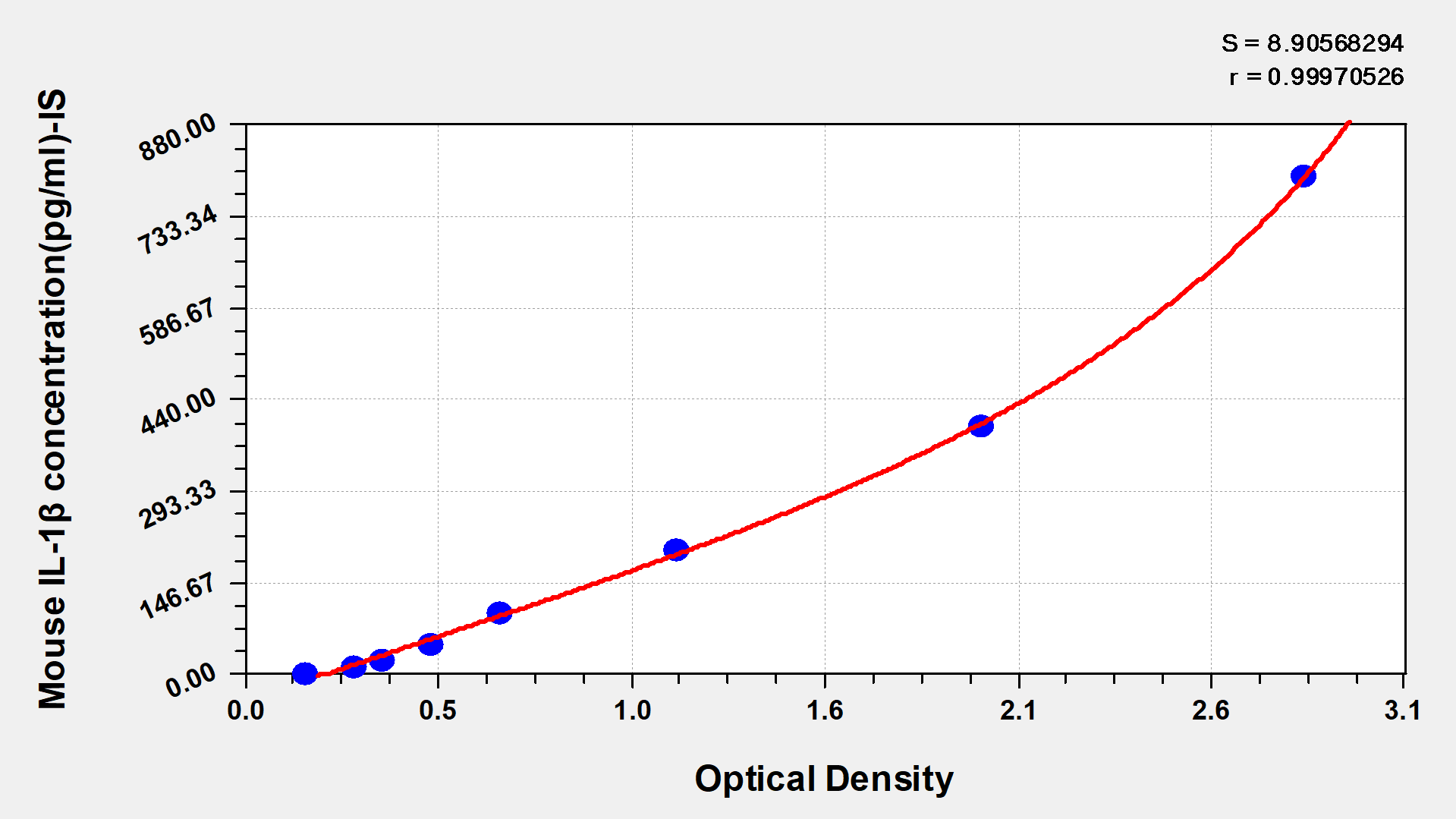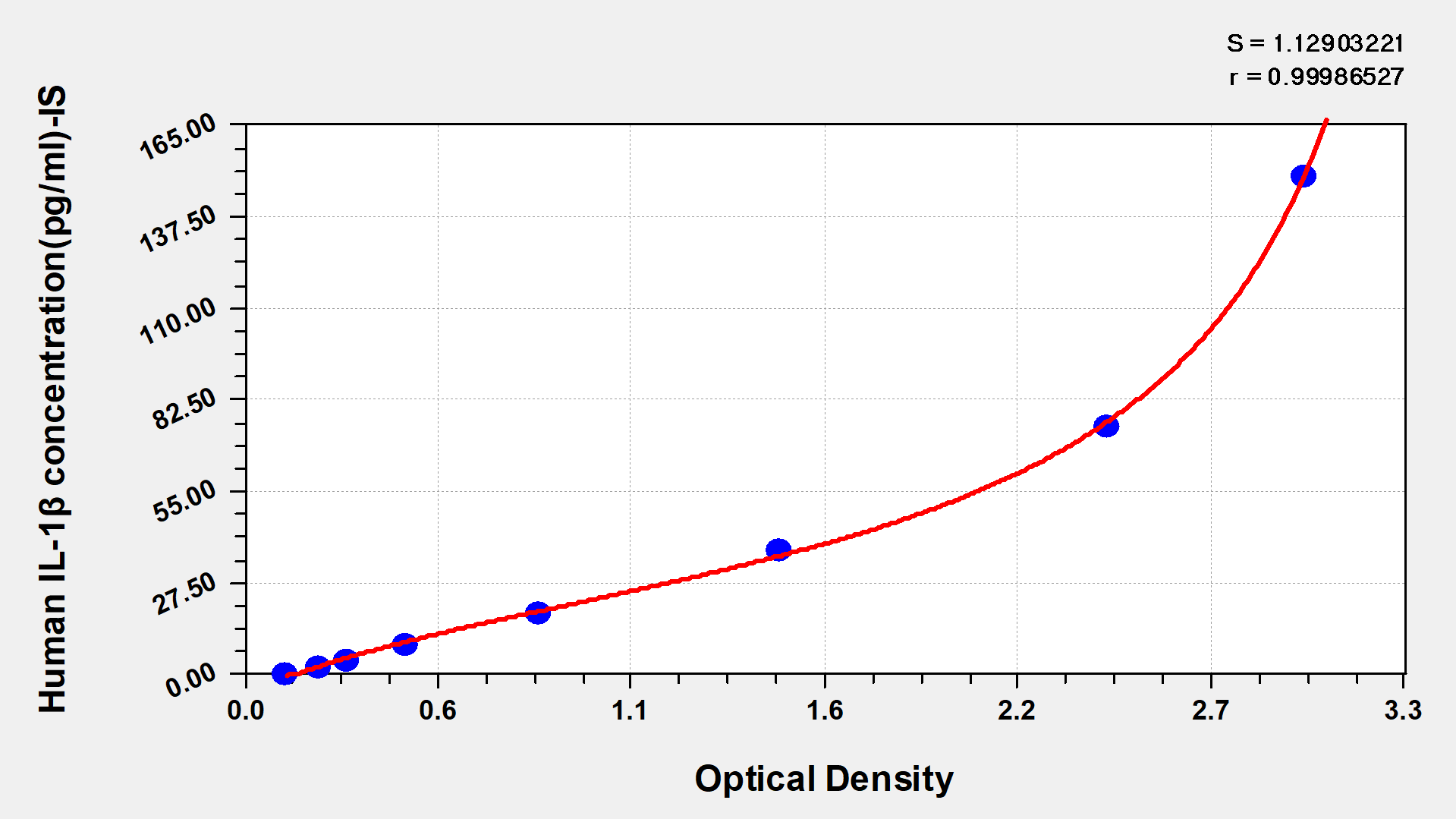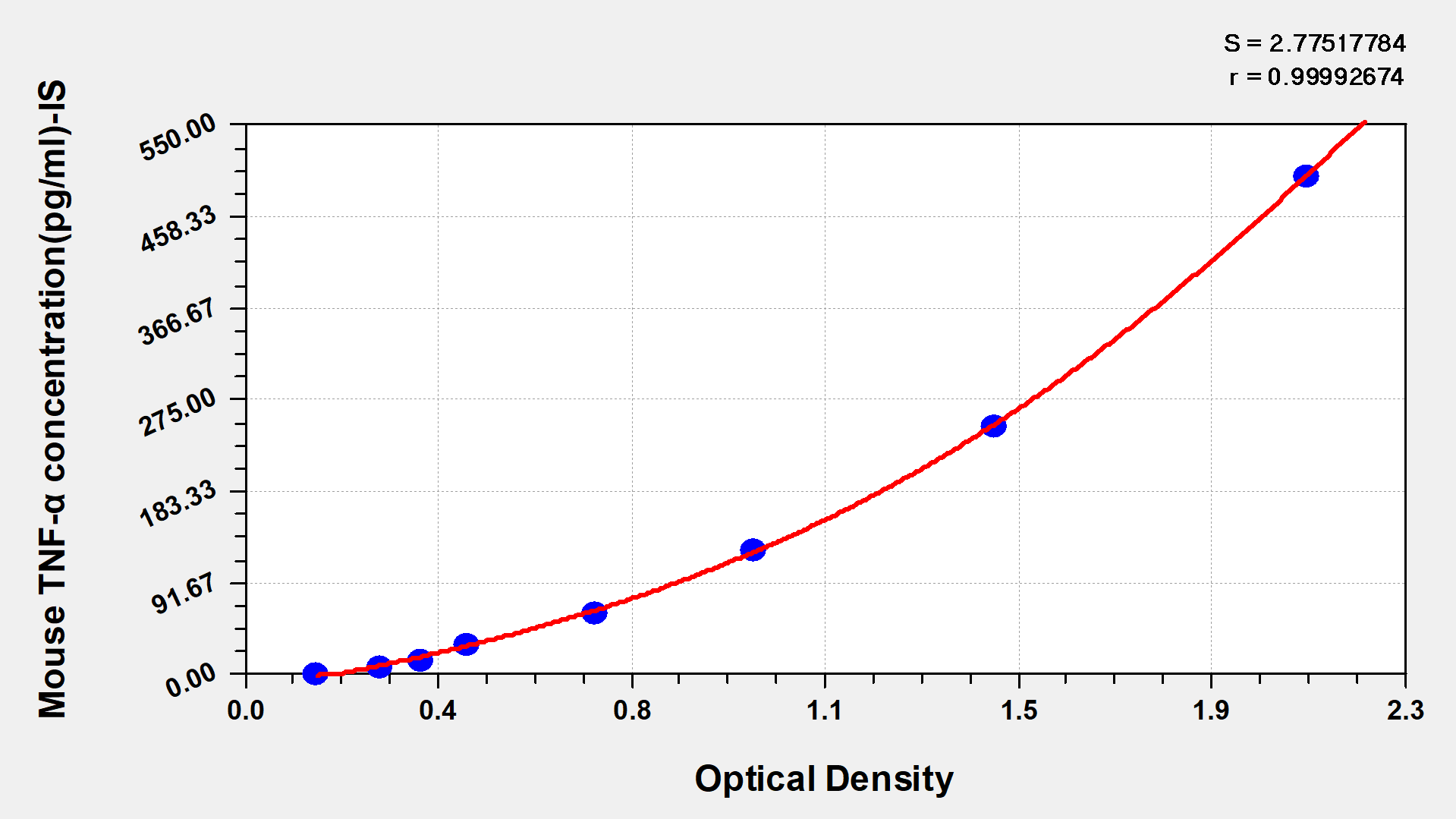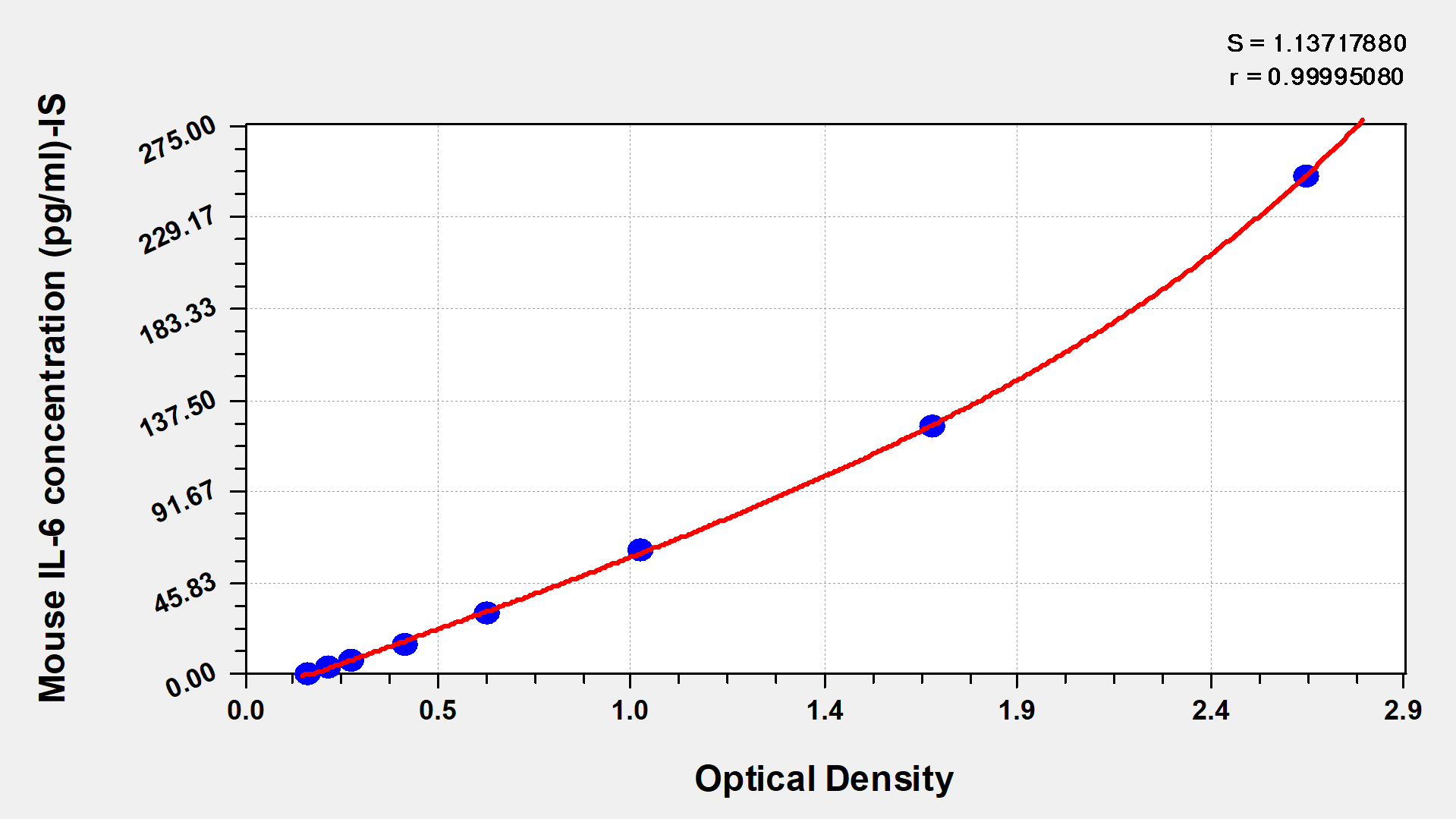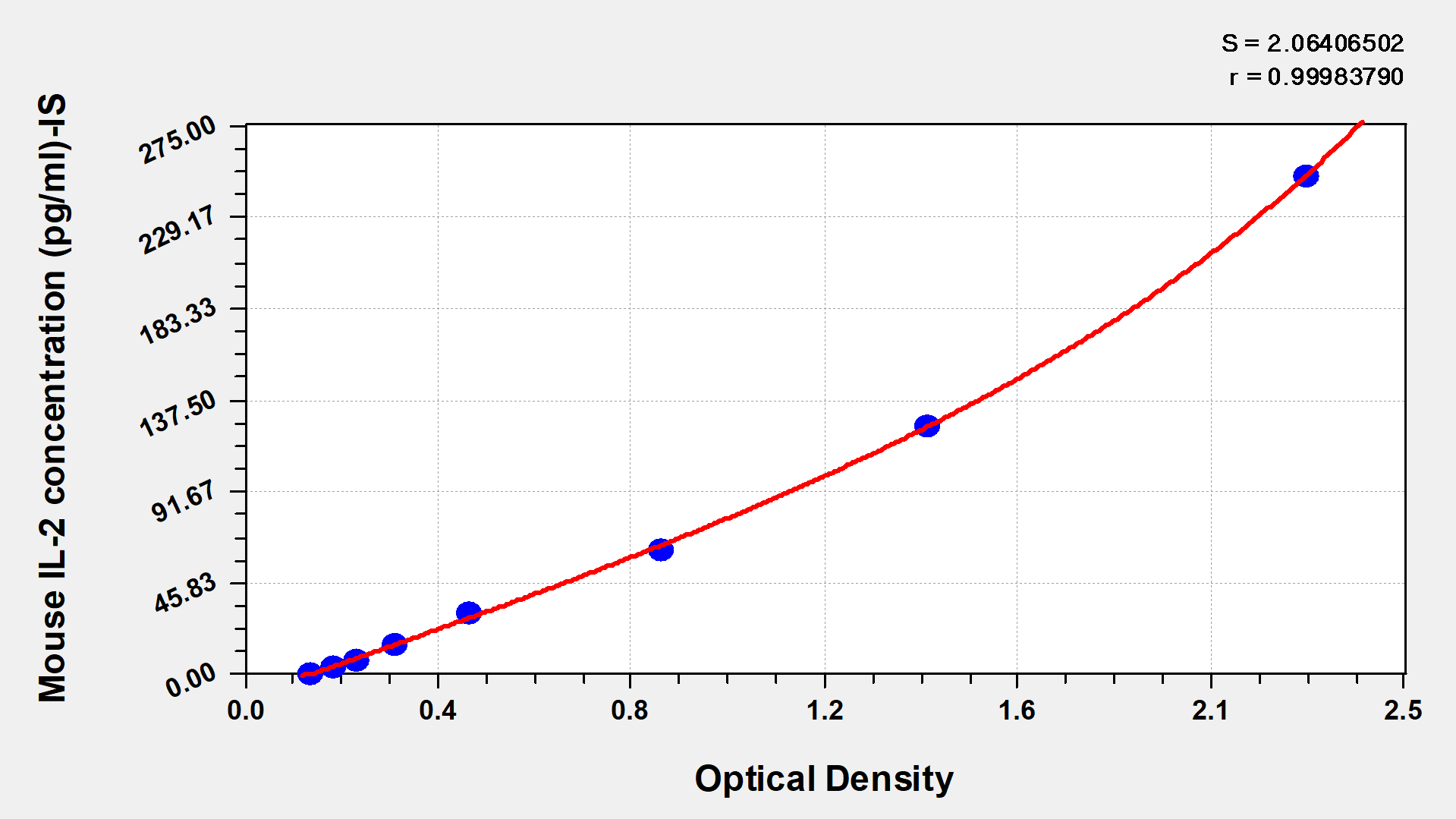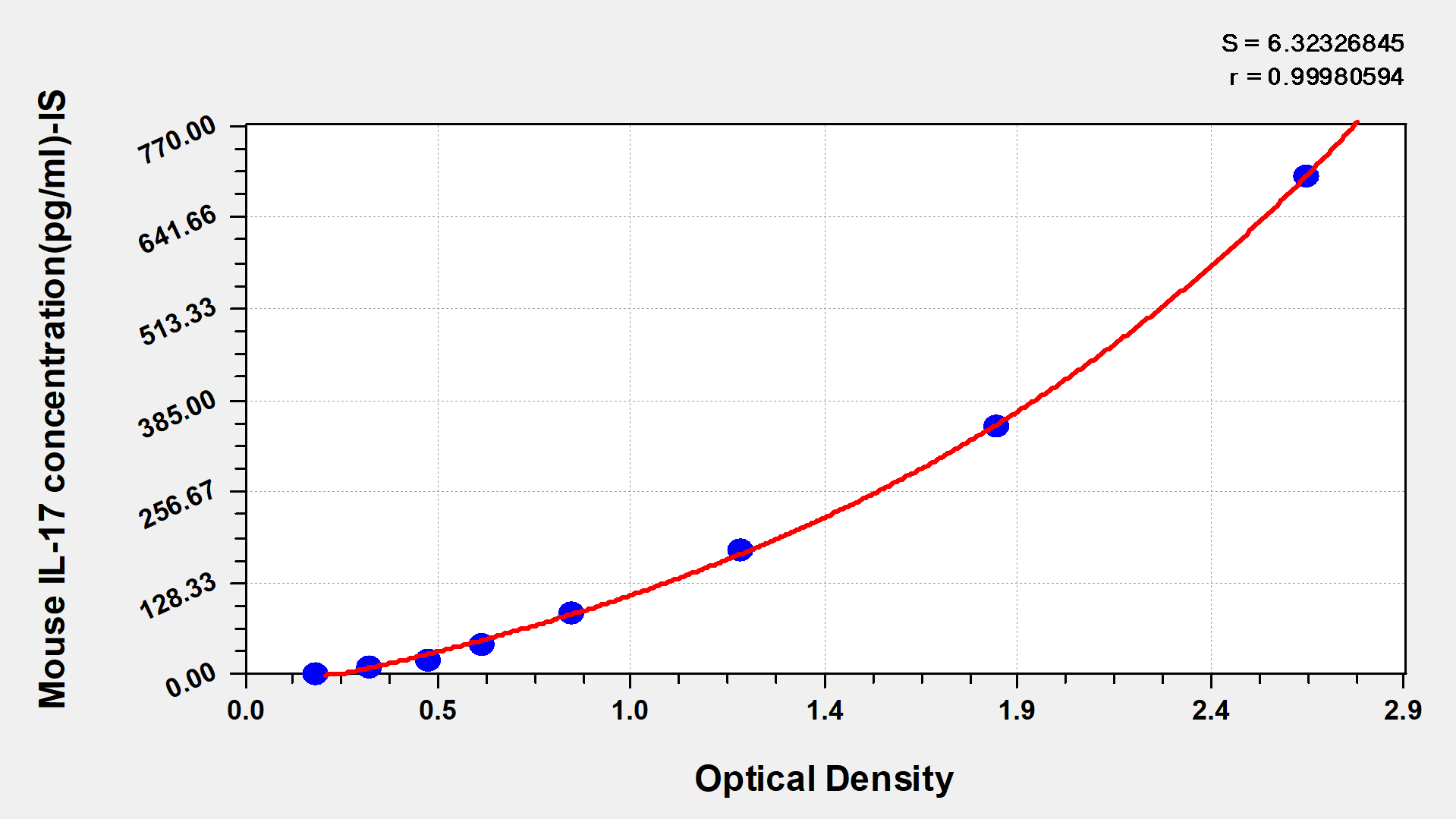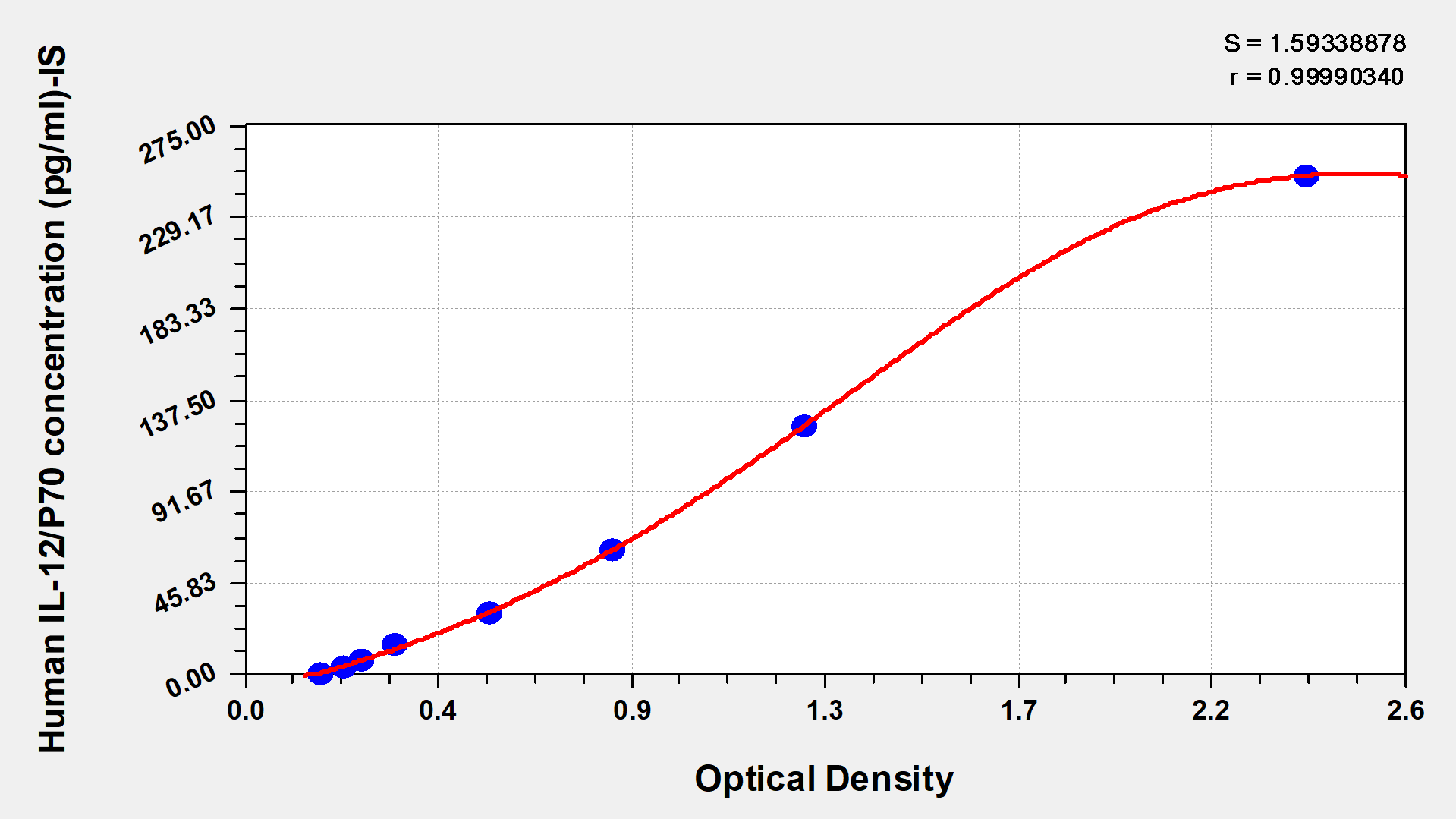Human Carbonyl reductase [NADPH] 1 (CBR1/CBR/CRN) ELISA kit
-
中文名称:人羰基还原酶[NADPH] 1 (CBR1/CBR/CRN)酶联免疫试剂盒
-
货号:CSB-E17009h
-
规格:96T/48T
-
价格:¥3600/¥2500
-
其他:
产品详情
-
产品描述:人羰基还原酶[NADPH] 1 (CBR1/CBR/CRN)酶联免疫试剂盒(CSB-E17009h)为双抗夹心法ELISA试剂盒,定量检测血清、血浆、组织匀浆样本中的CBR1含量。CBR1即大麻素受体 1,广泛分布于中枢神经系统等部位。它与内源性大麻素系统密切相关,参与调控食欲、记忆、情绪等生理过程。研究机制方面,聚焦其信号通路、与配体相互作用等,探索通过调节CBR1治疗相关疾病的可能。试剂盒检测范围为31.25 pg/mL-2000 pg/mL,适用于科研领域中对CBR1表达调控的探索,如药物代谢动力学研究、肿瘤耐药机制分析、氧化应激相关疾病模型构建等基础研究场景。本品仅用于科研,不用于临床诊断,产品具体参数及操作步骤详见产品说明书。
-
别名:15 hydroxyprostaglandin dehydrogenase [NADP+] ELISA Kit; 15-hydroxyprostaglandin dehydrogenase [NADP+] ELISA Kit; Carbonyl reductase [NADPH] 1 ELISA Kit; Carbonyl Reductase 1 ELISA Kit; CBR 1 ELISA Kit; CBR1 ELISA Kit; CBR1_HUMAN ELISA Kit; CRN ELISA Kit; NADPH dependent carbonyl reductase 1 ELISA Kit; NADPH-dependent carbonyl reductase 1 ELISA Kit; Prostaglandin 9 ketoreductase ELISA Kit; Prostaglandin 9-ketoreductase ELISA Kit; Prostaglandin E(2) 9 reductase ELISA Kit; Prostaglandin-E(2) 9-reductase ELISA Kit; SDR21C1 ELISA Kit
-
缩写:CBR1
-
Uniprot No.:
-
种属:Homo sapiens (Human)
-
样本类型:serum, plasma, tissue homogenates
-
检测范围:31.25 pg/mL-2000 pg/mL
-
灵敏度:7.81 pg/mL
-
反应时间:1-5h
-
样本体积:50-100ul
-
检测波长:450 nm
-
研究领域:Cell Biology
-
测定原理:quantitative
-
测定方法:Sandwich
-
精密度:
Intra-assay Precision (Precision within an assay): CV%<8% Three samples of known concentration were tested twenty times on one plate to assess. Inter-assay Precision (Precision between assays): CV%<10% Three samples of known concentration were tested in twenty assays to assess. -
线性度:
To assess the linearity of the assay, samples were spiked with high concentrations of human CBR1 in various matrices and diluted with the Sample Diluent to produce samples with values within the dynamic range of the assay. Sample Serum(n=4) 1:1 Average % 90 Range % 85-97 1:2 Average % 85 Range % 80-89 1:4 Average % 94 Range % 90-98 1:8 Average % 102 Range % 98-107 -
回收率:
The recovery of human CBR1 spiked to levels throughout the range of the assay in various matrices was evaluated. Samples were diluted prior to assay as directed in the Sample Preparation section. Sample Type Average % Recovery Range Serum (n=5) 96 92-100 EDTA plasma (n=4) 89 84-93 -
标准曲线:
These standard curves are provided for demonstration only. A standard curve should be generated for each set of samples assayed. 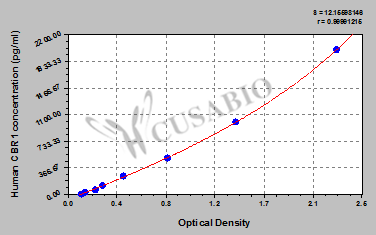
pg/ml OD1 OD2 Average Corrected 2000 2.319 2.214 2.267 2.142 1000 1.394 1.452 1.423 1.298 500 0.825 0.870 0.848 0.723 250 0.471 0.487 0.479 0.354 125 0.308 0.295 0.302 0.177 62.5 0.247 0.239 0.243 0.118 31.25 0.153 0.161 0.157 0.032 0 0.122 0.128 0.125 -
数据处理:
-
货期:3-5 working days
相关产品
相关问答
is it possible to use Cat#E17009H Human Carbonyl reductase [NADPH] 1 (CBR1/CBR/CRN) ELISA kit 96 tests for mouse samples too, is it possible to test this maybe?
It is not recommended to use the kit CSB-E17009H to detect mouse samples.
Because the protein of mouse and human Carbonyl reductase CBR1 are different. Also the antibody specificity of 2 kits is different.
There exsits sample matrix difference between mouse and samples.
We advise you not use the kit of across species.
靶点详情
-
功能:NADPH-dependent reductase with broad substrate specificity. Catalyzes the reduction of a wide variety of carbonyl compounds including quinones, prostaglandins, menadione, plus various xenobiotics. Catalyzes the reduction of the antitumor anthracyclines doxorubicin and daunorubicin to the cardiotoxic compounds doxorubicinol and daunorubicinol. Can convert prostaglandin E to prostaglandin F2-alpha. Can bind glutathione, which explains its higher affinity for glutathione-conjugated substrates. Catalyzes the reduction of S-nitrosoglutathione.
-
基因功能参考文献:
- This study examined the impact of the functional single nucleotide polymorphism CBR1 rs9024 on the bioactivation of loxoprofen in a collection of human liver samples and tumor cell lines. PMID: 29851133
- CRB1 is an efficient catalyst for the reduction of glutathionylated aldehydes derived from lipid peroxidation. PMID: 27562619
- The ability of human carbonyl reductase 1 to efficiently catalyze the reduction of glutathionylated aldehydes derived from lipid peroxidation, that in the case of glutathionylated-4-hydroxyalkanals is associated to the ability to oxidize the hemiacetal hydroxyl group PMID: 28274719
- Data suggest that fatty acids and acyl-CoAs bind competitively with respect to substrate binding to carbonyl reductase 1 (CBR1), an enzyme involved in first-pass drug metabolism in intestinal mucosa; inhibition of CBR1 by these products of digestion may lead to food-drug interactions. PMID: 28450226
- AKR1C3 is the primary enzyme and CBR1 is a minor enzyme responsible for warfarin reduction in human liver cytosol. PMID: 27055738
- These results suggest that CR1 induces apoptosis by activating the caspase pathway via binding to TNFR1. PMID: 26499922
- Results demonstrate a trend toward decreased functional expression of selective hepatic reductases in ESRD livers. PMID: 26282591
- Critical insights into the substrate selectivity of hCBR1 and the interaction between hCBR1 and glutathione. PMID: 26381805
- Up-Regulation of Carbonyl Reductase 1 Renders Development of Doxorubicin Resistance in Human Gastrointestinal Cancers PMID: 26328486
- CBR1 decreases promoted tumor proliferation and growth as well as invasion and metastasis; CBR1 has potential to become a new candidate for molecular targeting therapy. PMID: 25572536
- Inhibition of CBR1 may increase the efficacy of daunorubicin in cancer tissue. PMID: 25541467
- Protein products of AKR1C1, AKR1C2, AKR7A3, CYP3A4, and carbonyl reductase (CBR1) were found in tumors and those of AKR1C1, AKR7A3, and CBR1 correlated with their transcript levels. PMID: 25526449
- we suggest that PEP-1-CBR1 protein may be a therapeutic agent for the treatment of ischemic injuries as well as oxidative-stress-induced cell damage and death. PMID: 24440593
- The stimulatory effect of cortisol on CBR1 expression may partly explain the concurrent increases of cortisol and prostaglandin PGF2alpha in human amnion tissue prior to the onset of labor PMID: 24654784
- Nrf2 is a novel transcriptional regulator of CBR1 genes in humans. PMID: 23247010
- GSNO-induced covalent modification of cysteine residues affects the kinetic mechanism of CBR1. PMID: 23295225
- regulation of human CBR1 expression by hsa-miR-574-5p and hsa-miR-921 depends upon rs9024 genotype status PMID: 23133646
- This pilot study suggests that CBR1 RNA expression may be helpful in identifying AML patients at risk of developing resistance or toxicity to daunorubicin due to increased formation of daunorubicinol. PMID: 22562609
- CBR1 regulates cancer cell invasion in endometrial adenocarcinomas by regulating the epithelial mesenchymal transition PMID: 22542806
- Polymorphisms in CBR1 gene did not increase risk of cardiomyopathy after anthracycline treatment of childhood cancers. PMID: 22124095
- a physiological role of CBR1, but not for CBR3, in S-nitrosoglutathione reduction and thus ultimately in regulation of NO signaling PMID: 21256830
- This protein has been found differentially expressed in thalami from patients with schizophrenia. PMID: 20471030
- analysis of the structural basis for substrate specificity in human monomeric carbonyl reductases CBR1 PMID: 19841672
- the functional genetic determinant of CBR1 activity toward relevant physiological and pharmacological substrates PMID: 17344335
- The functional characterization of the promoter of CBR1 is reported. PMID: 17569794
- Carbonyl reductase-1 (CBR1), microsomal prostaglandin E synthase-1 and 2 (mPGES-1, mPGES-2), cytosolic prostaglandin E synthase (cPGES), aldoketoreductase (AKR1C1) and prostaglandin F synthase (AKR1C3) were all expressed in hair follicles. PMID: 17697149
- These results suggested that hCBR3 and hCBR1 play distinct physiological roles. PMID: 18493841
- Human carbonyl reductase 1 is an S-nitrosoglutathione reductase PMID: 18826943
- CBR1 polymorphisms have a significant influence on the pharmacokinetics of doxorubicin in Asian breast cancer patients. PMID: 19016765
- the nonsynonymous single nucleotide polymorphisms generating mutations OF CBR1 may alter bioavailability of anthracyclines in cancer patients PMID: 19204081
显示更多
收起更多
-
亚细胞定位:Cytoplasm.
-
蛋白家族:Short-chain dehydrogenases/reductases (SDR) family
-
组织特异性:Expressed in kidney (at protein level).
-
数据库链接:
Most popular with customers
-
Human Transforming Growth factor β1,TGF-β1 ELISA kit
Detect Range: 23.5 pg/ml-1500 pg/ml
Sensitivity: 5.8 pg/ml
-
-
-
Mouse Tumor necrosis factor α,TNF-α ELISA Kit
Detect Range: 7.8 pg/ml-500 pg/ml
Sensitivity: 1.95 pg/ml
-
-
-
-



